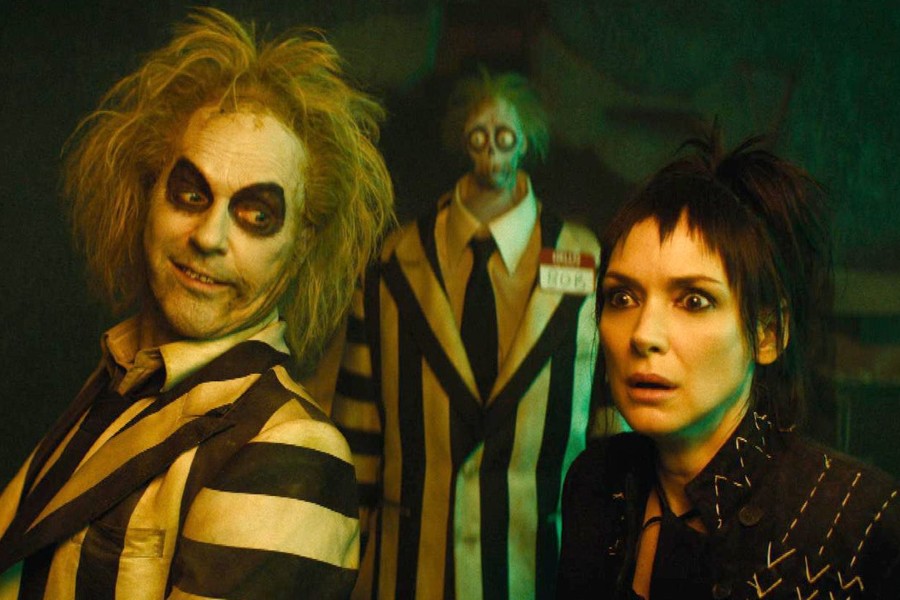Spooky season is nearly upon us, appropriately heralded in by the much-anticipated sequel to the original Beetlejuice film from 1988. The latest film, Beetlejuice Beetlejuice, welcomes back fan favorites Michael Keaton as the titular character Betelgeuse, Winona Ryder as former goth princess Lydia Deetz, and Catherine O’Hara as everyone’s favorite stepmother, Delia Deetz. It also adds some wonderful new cast members, such as Jenna Ortega as Lydia’s estranged daughter, Astrid. But did you know this fun Halloween romp also includes lessons on workplace romances and contract law?
Strange and Unusual Workplace Romances
The sequel reintroduces us to Lydia, who is now the host of a supernatural talk show called Ghost House. Having cleverly avoided a disturbing teen marriage to Betelgeuse in the first film, she is now dating the producer of her talk show. For those of you who follow this blog regularly or work in the human resources field, you are probably already thinking it is a big red flag to be mixing business with romance.
Indeed, many employers have policies in place expressly prohibiting workplace romances, particularly relationships involving a manager and a subordinate where there is an imbalance of power calling into question the issue of consent. Workplace romances can certainly sour and lead to awkward professional situations and even litigation rather than a happily ever after. The stakes are even higher in this fictional world where few living and dead are who they seem to be.
Another Sandworm of a Marriage Contract
As Astrid discovers she has inherited her mother’s supernatural powers and finds herself in trouble with the afterlife, Lydia makes the difficult choice to summon Betelgeuse for help with rescuing her daughter. As in the first movie, Betelgeuse expects Lydia to enter into a contract to marry him as payment for this help.
To have a binding contract, parties typically must demonstrate an offer, acceptance, consideration, competency, and legality. Lawyers often talk about the importance of having a true meeting of the minds, where all parties involved agree to the same terms, conditions and subject matter.
Even a contract that appears to check all these boxes could still be held to be unenforceable if it is deemed unconscionable, meaning the contract terms are so extremely unjust or overwhelmingly one-sided in favor of the party with superior bargaining power that it shocks the conscience. Here, Betelgeuse is clearly the one with the superior bargaining power, and Lydia (a mother desperate to save her daughter from imminent peril) does not have any meaningful choice in the matter.
So, does Lydia escape a second contract to marry Betelgeuse? You will have to check out the second film to find out. In the meantime, Beetlejuice . . . Beetlejuice . . . .
Kristen Starnes Gray is a partner at FordHarrison.



